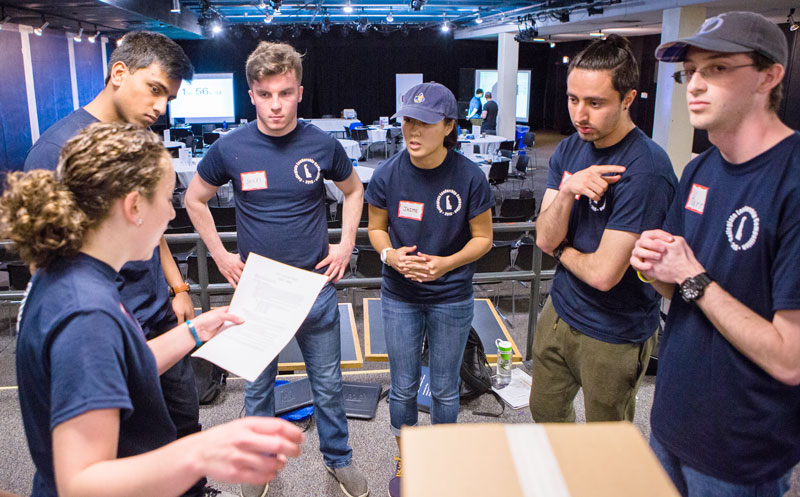


Leadership Lesson
Blue Hen Leadership Program gives students valuable life skills
December 14, 2020
Jordan Heydt still thinks about those frightful early days of her freshman year. There she was, feeling alone among thousands, wondering if college life would always seem so intimidating.
Then she decided to give the Blue Hen Leadership Program a try and hasn’t looked back since.
For Heydt, EOE21, AS21, and hundreds of other Blue Hens, UD’s unique co-curricular, confidence-boosting certificate program has meant the difference between wallowing in uncertainty and striding confidently toward their academic and professional futures. Step by step, year by year, this 10-year-old program pushes students to adapt to new people and confront tough problems, giving them life skills (and a resumé boost) they never expected to find in college.
The program is based in the belief that leadership can be taught through six competency areas: Personal leadership, organizational leadership, communication, diversity and inclusion, community engagement and management. In a way, it serves as a bridge from one world to another—from a teen-age mindset to the steady confidence of a young professional—at an age when many people are standing perilously between the two.
“It gave me such confidence in myself,” says Heydt, a marine sciences and biology major graduating this spring. “It has 100 percent changed me. I suddenly had people I could talk to. And I’ve made friends I’ll have for the rest of my life.”
In the past 8 years, Blue Hen Leadership Program students have completed more than 200 projects for local nonprofits.
Along the way, participants gain even more: They speak of a newfound confidence, a willingness to stand up and take action. They are taught to look within themselves and find purpose and poise. They sit through training sessions and work beside older students eager to serve as mentors, then take their newfound skills into the community, where participants are challenged to help nonprofit and small-business partners improve their own processes.
“I was not an extroverted person coming to college,” says Nish Chintala, BE21, EG21, who spent his junior year helping a Wilmington nonprofit qualify for the food stamp program, thereby boosting access to affordable food for low-income residents. “My personal development has amazed me. Every single experience I’ve had with this program has made me the person I am today.”
Achieving that goal means uncovering latent strengths, but also confronting personal weaknesses, says program veteran Ron Phillips, AS18, now a second-year medical student at Brown University.
“It really trains you to be self-reflective,” he says. “We talk about identifying our strengths and how we thrive, but as you get further into the program, you get better at identifying where you’re not so good.”
During their time in the program, Heydt, Chintala and Phillips also took part in the national Collegiate Leadership Competition, and BHLP’s team has been the Mid-Atlantic Champion two years in a row.
Even as program’s participants prove their skills nationally, the program itself is also having a broader impact around campus, and in the workplace. Its programming now reaches more than 3,000 Blue Hens annually through its four-year program, and through the workshops it offers to student athletes, Greek groups and student clubs. Its annual Change Makers Leadership Conference attracts 500 attendees.
“One of the greatest aspects of my job is when alumni reach out to me and say, ‘I got my job because I talked about the Blue Hen Leadership Program in my interview’,” says Susan Luchey, who oversees the program as Associate Director of University Student Centers. “This program’s pay-off is being felt in our communities every day.”
Contact Us
Have a UDaily story idea?
Contact us at ocm@udel.edu
Members of the press
Contact us at 302-831-NEWS or visit the Media Relations website


